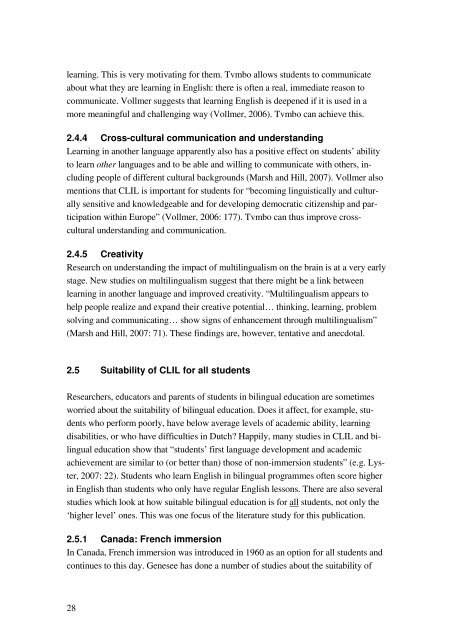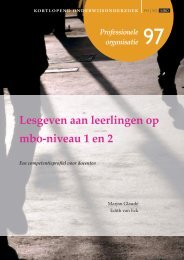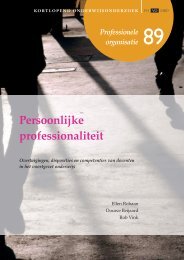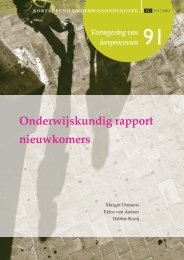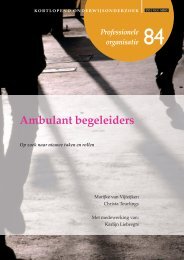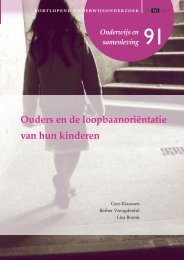Proud to be tvmbo - Kortlopend Onderwijsonderzoek
Proud to be tvmbo - Kortlopend Onderwijsonderzoek
Proud to be tvmbo - Kortlopend Onderwijsonderzoek
You also want an ePaper? Increase the reach of your titles
YUMPU automatically turns print PDFs into web optimized ePapers that Google loves.
learning. This is very motivating for them. Tvmbo allows students <strong>to</strong> communicate<br />
about what they are learning in English: there is often a real, immediate reason <strong>to</strong><br />
communicate. Vollmer suggests that learning English is deepened if it is used in a<br />
more meaningful and challenging way (Vollmer, 2006). Tvmbo can achieve this.<br />
2.4.4 Cross-cultural communication and understanding<br />
Learning in another language apparently also has a positive effect on students’ ability<br />
<strong>to</strong> learn other languages and <strong>to</strong> <strong>be</strong> able and willing <strong>to</strong> communicate with others, including<br />
people of different cultural backgrounds (Marsh and Hill, 2007). Vollmer also<br />
mentions that CLIL is important for students for “<strong>be</strong>coming linguistically and culturally<br />
sensitive and knowledgeable and for developing democratic citizenship and participation<br />
within Europe” (Vollmer, 2006: 177). Tvmbo can thus improve crosscultural<br />
understanding and communication.<br />
2.4.5 Creativity<br />
Research on understanding the impact of multilingualism on the brain is at a very early<br />
stage. New studies on multilingualism suggest that there might <strong>be</strong> a link <strong>be</strong>tween<br />
learning in another language and improved creativity. “Multilingualism appears <strong>to</strong><br />
help people realize and expand their creative potential… thinking, learning, problem<br />
solving and communicating… show signs of enhancement through multilingualism”<br />
(Marsh and Hill, 2007: 71). These findings are, however, tentative and anecdotal.<br />
2.5 Suitability of CLIL for all students<br />
Researchers, educa<strong>to</strong>rs and parents of students in bilingual education are sometimes<br />
worried about the suitability of bilingual education. Does it affect, for example, students<br />
who perform poorly, have <strong>be</strong>low average levels of academic ability, learning<br />
disabilities, or who have difficulties in Dutch? Happily, many studies in CLIL and bilingual<br />
education show that “students’ first language development and academic<br />
achievement are similar <strong>to</strong> (or <strong>be</strong>tter than) those of non-immersion students” (e.g. Lyster,<br />
2007: 22). Students who learn English in bilingual programmes often score higher<br />
in English than students who only have regular English lessons. There are also several<br />
studies which look at how suitable bilingual education is for all students, not only the<br />
‘higher level’ ones. This was one focus of the literature study for this publication.<br />
2.5.1 Canada: French immersion<br />
In Canada, French immersion was introduced in 1960 as an option for all students and<br />
continues <strong>to</strong> this day. Genesee has done a num<strong>be</strong>r of studies about the suitability of<br />
28


